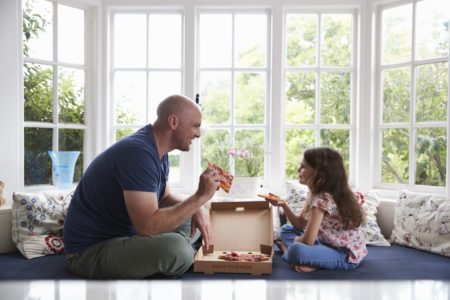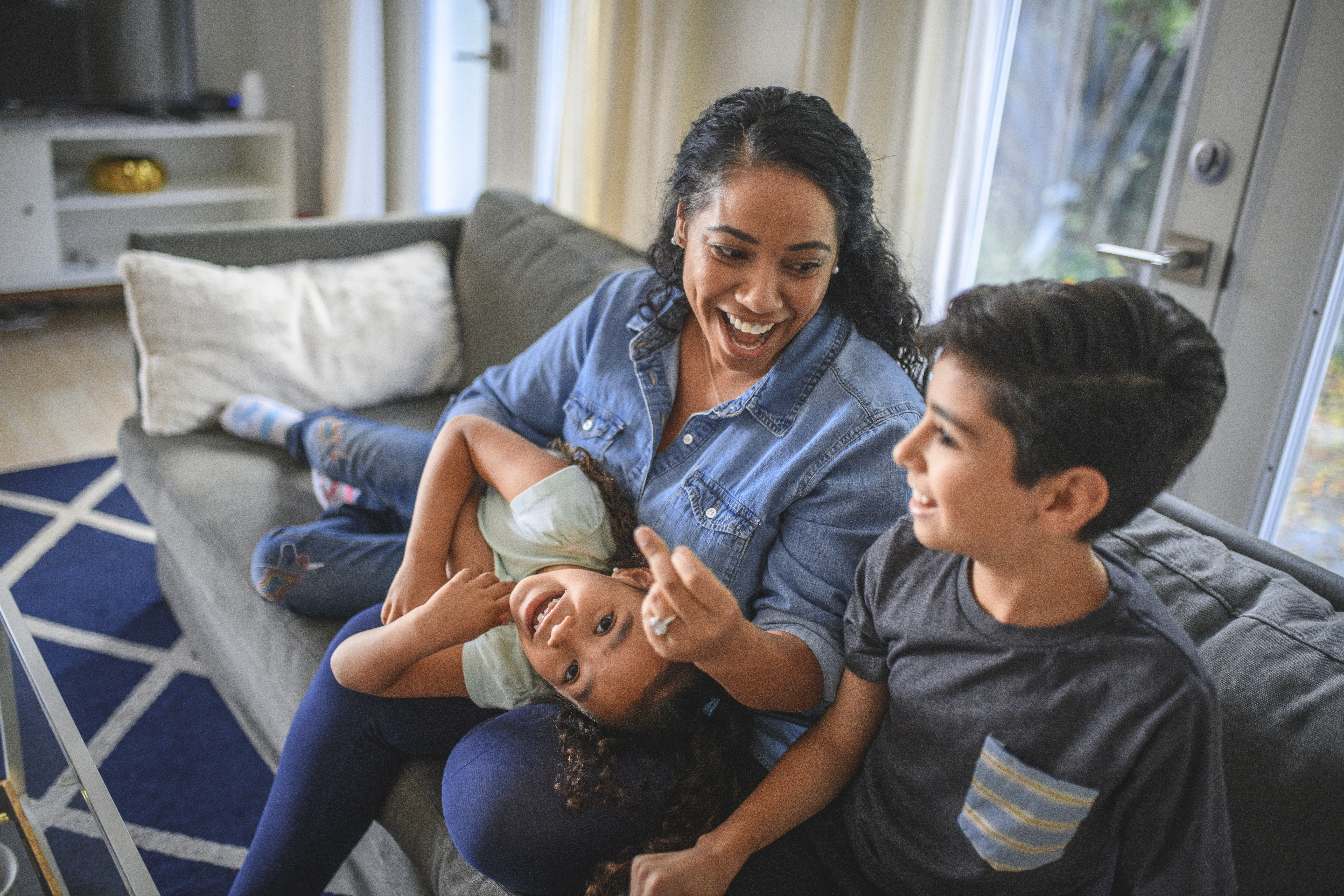Spending a lot of time at home with your kids? Looking for a fun and healthy activity to do together? Try the “What If” Game!

The “What If?” Game is a great way to pose possible situations to kids that they may face in life and would need to solve. As a parent or caregiver, it’s important to let your kids know you are always there for them and they can tell you anything. But you can’t always be there, at least not physically. By playing the “What If?” Game, you are empowering your children to develop positive decision-making skills and giving them the confidence they need to problem-solve on their own. It helps build resilience, which is crucial for overcoming obstacles.
Check in with your kids about how they are feeling right now. Ask them hypothetical questions: “What would you do if…?” Mix real questions in with silly questions to keep them engaged. “What if you met an alien – what would you ask? What if you could be a superhero – what would your superpower be? What if someone you don’t like tries to kiss you – what would you do?” The current environment is a perfect example of discussing different scenarios, ones you never thought were possible, and how your kids might react to them.
So how do you play?
Identify age-appropriate, potential safety scenarios. Darkness to Light has a starter pack of “What If?” Game cards available on our storefront that you can use, but here are the basics:
- Play in a casual and neutral environment. This makes a great car-ride game!
- Try it in small groups of like-age children or with your family.
- Ask questions about a mix of daily life events, unexpected situations, and sexual boundary violations.
- Be clear it is a game. It’s not that you expect these things to happen, but you’re prepared if it does.
- Include only two or three scenarios at a time. Play the “What If?” Game overtime, not all at once.
- As an alternative to purchasing the cards from the storefront, use index cards to make your own deck.
- Some children may want to write their own scenarios, once they have the hang of it. Let them give it a try!
- Let your kids ask you the questions, too! They can learn from the way you would respond.
Pose scenarios or have your kids come up with them:

- Use actual scenes and examples from the child’s life.
- I.e.: What if you climbed up a tree just fine, but then you weren’t sure how to come down? Or, What if during your sleepover at Jeffery’s house you wake up scared in the middle of the night?
- The idea is not to scare or barrage your child all at once – you may only want to ask one or two questions that involve boundaries and sexual abuse.
- I.e.: What would you do if Sam’s brother asked you to look at naked pictures? Or, What if Aunt Kim tells you to come to her room and close the door?
- You know your child best – if he/she shows enthusiasm, mirror this! If they seem scared or anxious, use encouragement and don’t push them.
- Wait for the child’s ideas and try not to coach unless the child is really stumped.
- If the child can’t create a solution, first try coaching with open-ended prompts.
- I.e: Well, let’s just think about ideas we have. Or, What’s the first thing you might try? Or, Is there someone around who could help?
- Creating their own solutions builds confidence for problem-solving in all areas, not just the ones you talk about.
- Children are more likely to remember the solution they thought of.
The “What If?” game is a great opportunity to strengthen bonds with your kids that can ultimately help protect them from abuse. Building this bond is essential—and not hard to do!
Looking for resources or support? Call 866.FOR.LIGHT or text LIGHT to 741741 to have questioned answered or chat with a trained crisis counselor, 24/7 at no charge. All conversations are confidential.
Follow us on social media to stay up to date and join the conversation.





The training is excellent in equipping adults with strategies and steps to use in order to protect children during a crisis. I know signs to look for and how to adapt the steps to new situations.
Excellent Training. I acquired information that may prove useful in the future.
I hope to use this resource in a small group setting both face to face and with remote learning.
This is a good game to for any emergency. This would help in many different scenerios.
As a therapist who works with children, this training has been informative. The training is something that many parents would benefit from, if nothing else just to keep them informed.